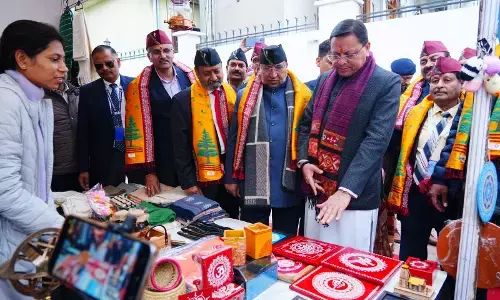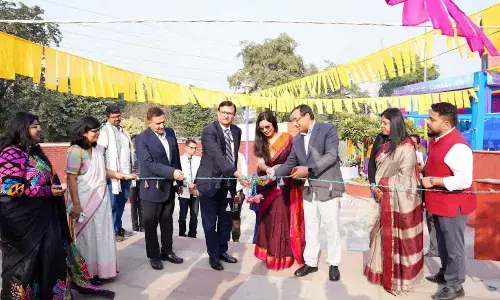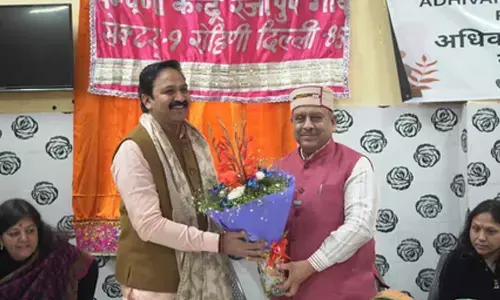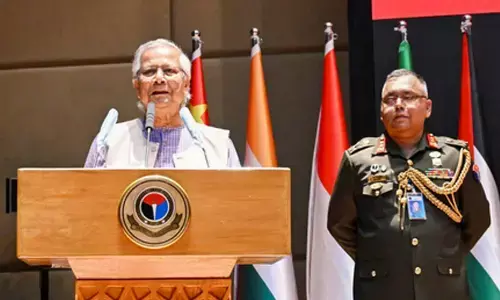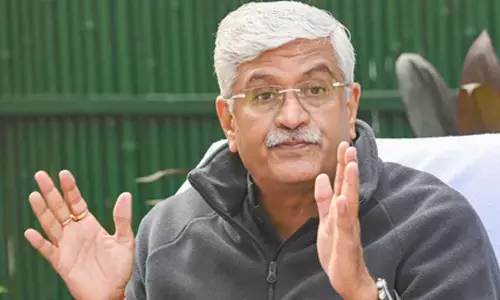Dyeing units make life miserable in Chirala
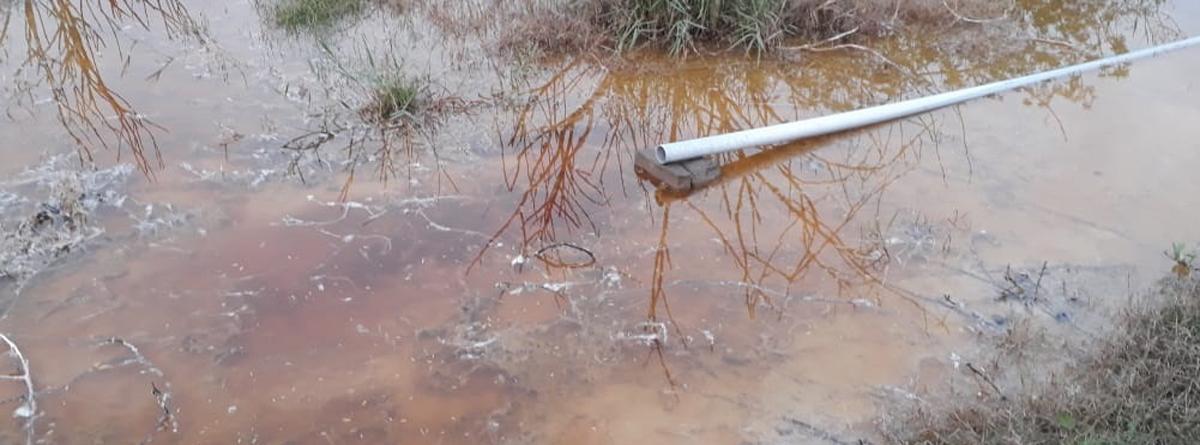
The machinebased largescale textile dyeing units setup in the handloom town of Chirala and surrounding areas have become a threat to the lives of people living around them
Chirala: The machine-based large-scale textile dyeing units setup in the handloom town of Chirala and surrounding areas have become a threat to the lives of people living around them.
The pollution levels of the waste water being flushed out from them into the Kunderu rivulet and earth pits are polluting the groundwater and drinking water sources, leaving the public pay thousands of rupees for medical and drinking water bills, despite suffering from ill-health.
Tamil Nadu is used to be the state with highest number of textile dyeing units. These units require about one lakh liters of water daily for dyeing and processing the yarn. As many of the units are running without proper permissions and drying up the bore wells in the vicinity along with causing great pollution to the surface water sources and crops, Tamil Nadu government ordered to shut down them around a decade ago.
After the closure of the dyeing units in Tamil Nadu, many of their owners established them in Kanataka, along the borders of Tamil Nadu. After facing hard time in Karnataka, they eyed on Chirala, the handloom hub in Andhra Pradesh and also known as China Bombay. Since 2010, about 56 dyeing units are established in Chirala and Vetapalem mandals in the Prakasam district.
Most of them do not have the requisite permissions from the revenue, labor, pollution and other departments and are said to be violating the Andhra Pradesh Water, Land and Trees Act (WALTA Act). In 2012, the pollution board officials ordered for the disconnection of electricity, until they get all permissions. But, they managed to get power using their connections in government, rather than getting the permissions.
As the number of dyeing units is increasing in the area, the government advised them to establish a common effluent treatment plant and asked them to use the treated water for growing greenery. But, the managements of the units are failed to setup the ETP and are releasing the water into Kunderu, which is the drinking water source to Chalalreddy Palem and other villages. Some of them started to pump the water into the earth pits, which started to pollute the ground water sources.
A local, Goli Koteswara Rao said that they are continuously falling ill for the last 10 years, due to the consumption of the polluted water. He said that the chemicals used in the industries for the dyeing purposes have polluted the water in the bore wells and most of the public in the area are suffering from the skin diseases and kidney diseases. Another local Mohammed Basha said that due to the chemicals in the water, the fields are also becoming barren and the produce is dropped drastically. He also added that they are spending nearly Rs 1000 to Rs 1200 for purchasing drinking water cans every month.
Receiving complaints from the locals, the MLA Amanchi Krishnamohan demanded the officials to initiate action on the violators and seize the polluting dyeing units. He warned the officials that if they do not take any action on the industries, they will be held responsible for the aftermath developed events. M Pramod Kumar, EE in the rRegional office of Pollution Board in Nellore said that there are 12 to 14 big industries in Chirala surroundings while the remaining are small and traditional dyeing units.
He said that they have recently conducted raids on two industries, the Marvel and Jayasri Dyeing units in Chirala and ordered them to seize immediately as they are violating most of the norms. He said that the common effluent treatment plant is not materialized as they didn’t get the clearance from the environment department. Instead, he said that they are advising the urban local body to construct the ETP and Septic Treatment Plant and charge the companies for treating the effluent.








